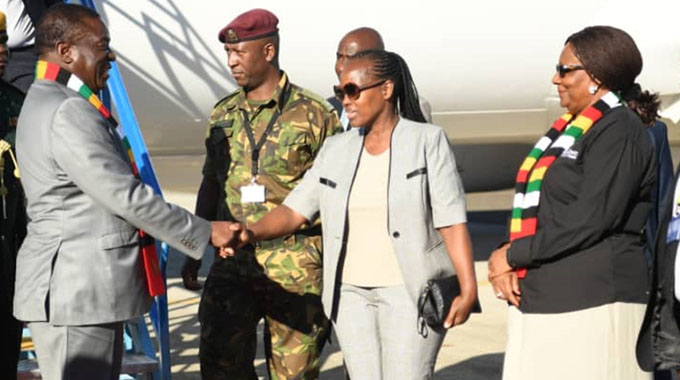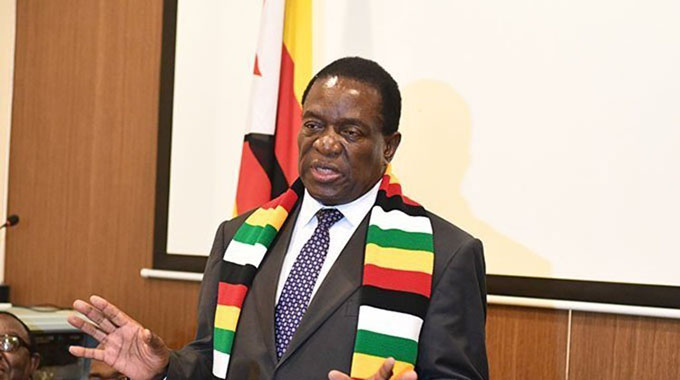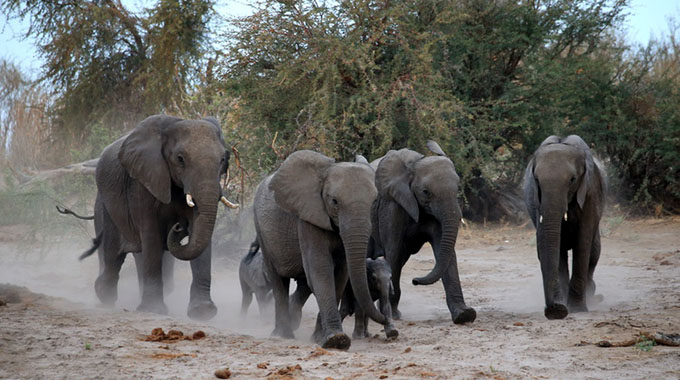Call for unity on region’s jumbo issues

Langton Nyakwenda in Kasane, Botswana
SOUTHERN AFRICA, which is home to 61 percent of the world’s elephant population, can only benefit more from its natural resources if the block remains united and speaks with one voice in international forums, Minister of Environment, Tourism and Hospitality Industry Prisca Mupfumira has said.
Minister Mupfumira met her counterparts from the Kavango-Zambezi Transfrontier Conservation Area (KAZA TFCA), at the ongoing Kasane Elephant Summit in Botswana, which will be officially opened tomorrow by Heads of State from the region, including President Mnangagwa, who arrived here yesterday.
The Kasane summit comes ahead of the Convention on International Trade in Endangered Species of Wildlife and Flora (CITES) which is expected to be held later this year.
Despite having the biggest elephant population globally, KAZA bloc cannot fully benefit financially from these resources, neither can nations within this region cull or freely move their jumbos because of restrictions and international pressure.
Angola, Botswana, Namibia, Zambia and Zimbabwe form the Kavango-Zambezi bloc which is home to more than 250 000 elephants out of the estimated 400 000 jumbos worldwide.
“What we are talking about here is the sustainable utilisation of our God-given natural resources,” Minister Mupfumira said during a Ministers’ meeting held ahead of the official opening today.
“I believe the people who can tell us how to manage our resources are none other than ourselves. And from the statistics, collectively as KAZA we have 75 percent of the elephants, so who else can tell us how to nurture or conserve the elephants and other animals, but ourselves, we have to teach the world,” said Minister Mupfumira.
“It’s up to us and our media to tell the story correctly, we must continue to work as one force and we will be stronger.
“That way we remain united and tell our story to the outside world,” she added.
Botswana Minister of Environment, Natural Resources Conservation and Tourism who is also the chairman of KAZA, Mr Kitso Mokaila, blasted some international media for twisting the elephant agenda.
“As expected, there has been a bad wave, fuelled by the media, not ours, but those from the West. We should continue to speak with one voice when it comes to our regional elephants.
“Together we stand, but divided we fall, it is my conviction that as Southern Africa range states we have an obligation to resolutely and collectively work together to find lasting solutions to the issue of our elephants,” thundered Mr Mokaila.
“We have to engage as a block, internationally it is evident that our arguments on elephants of which we have in abundance are being countered on multiple fronts, we as a region have become victims of our own success.
“One major challenge which is haunting us is that of human-elephant conflict, (which) has resulted in great competition between people and wildlife, people lose lives, crops and other properties which are destroyed by these animals. This cannot be tolerated and it can be a failure on our part if we cannot address this,” he added.
Zambia Tourism and Arts Minister Mr Charles Banda also echoed the same sentiments.
Botswana president Dr Mokgweetsi Masisi, Mr Edgar Lungu of Zambia and President Mnangagwa will attend the Summit today.
The next CITES meeting is scheduled for Colombo in Sri Lanka later this year.









Comments